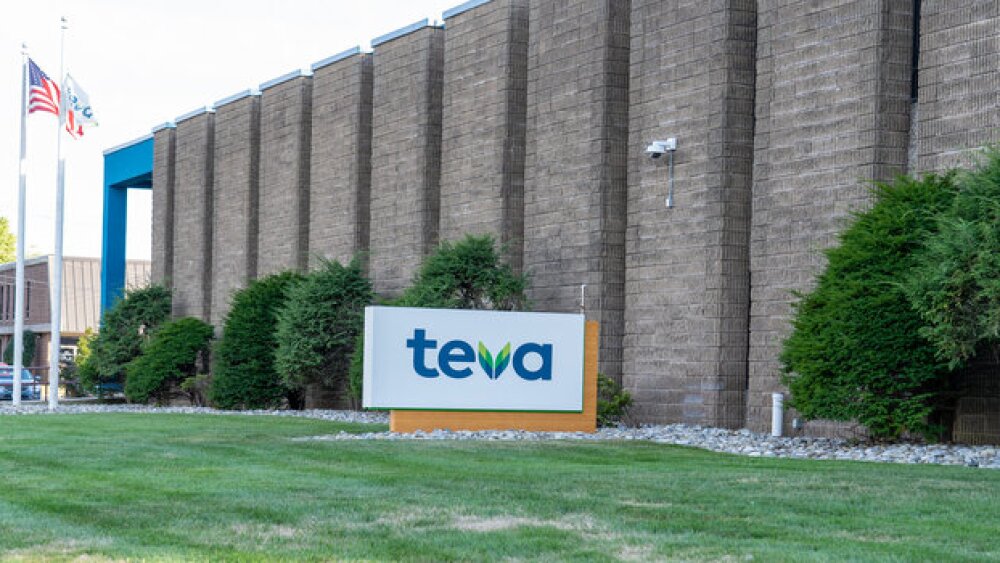Three years after the initial case, Teva Pharmaceuticals is finally settling its drug price-fixing charges with the Department of Justice for $225 million, payable over a five-year period.
Pictured: Teva Pharmaceuticals USA headquarters in New Jersey/iStock, JHVEPhoto
Teva Pharmaceuticals on Monday announced that it reached a deferred prosecution agreement with the U.S. Department of Justice over its drug price-fixing case involving generic drugs.
Under the deferred prosecution agreement (DPA), Teva will pay a total of $225 million over a five-year period starting next year. From 2024 to 2027, the company will make $22.5 million tranches, culminating in a $135 million lump sum in 2028. Teva also agreed to divest one additional generic product to a third-party buyer.
In return, the DPA will allow Teva to sidestep a mandatory exclusion from U.S. federal healthcare programs, which would have been the company’s punishment if the case had gone to trial and it had been found guilty.
In its news release, Teva pinned the drug price-fixing charges on a single former employee, who between 2013 and 2015 “agreed with competitors that Teva would not bid on an opportunity to supply that customer with a particular generic product.” As part of the agreement, the company has also committed to implement and maintain compliance controls to prevent such incidents from happening again.
The DOJ slapped Teva with three counts of drug price-fixing charges in August 2020, alleging that the company participated in a widespread conspiracy to artificially maintain high prices for its generic drugs. Six other companies were also involved in the scheme, according to the DOJ.
In particular, the DOJ alleged that Teva colluded with Glenmark Pharmaceuticals and Apotex to raise prices for pravastatin, its generic prescription cholesterol medication commonly used to lower the risk of heart diseases and stroke. India-based Glenmark was charged a month earlier, in July 2020.
Teva was also charged with working with Taro Pharmaceuticals to “increase prices, rig bids, and allocate customers for generic drugs,” including those indicated for arthritis, seizures and other conditions.
The DOJ also accused Teva of working with Novartis’ generics arm Sandoz for similar price-fixing, bid-rigging and market-allocation activities, this time for medicines used for brain cancer, cystic fibrosis and hypertension.
In March 2020, Sandoz agreed to a $195 million criminal penalty and “admitted that its sales affected by the charged conspiracies exceeded $500 million,” according to the DOJ.
Monday’s DPA is the latest legal development for Teva. Last month, the company, along with Gilead, won a lengthy lawsuit that alleged they illegally inflated drug prices for HIV treatments. In June 2023, Teva was at the center of an additional $18.75 billion settlement, along with AbbVie’s Allergan, over opioid lawsuits.
Tristan Manalac is an independent science writer based in Metro Manila, Philippines. He can be reached at tristan@tristanmanalac.com or tristan.manalac@biospace.com.






